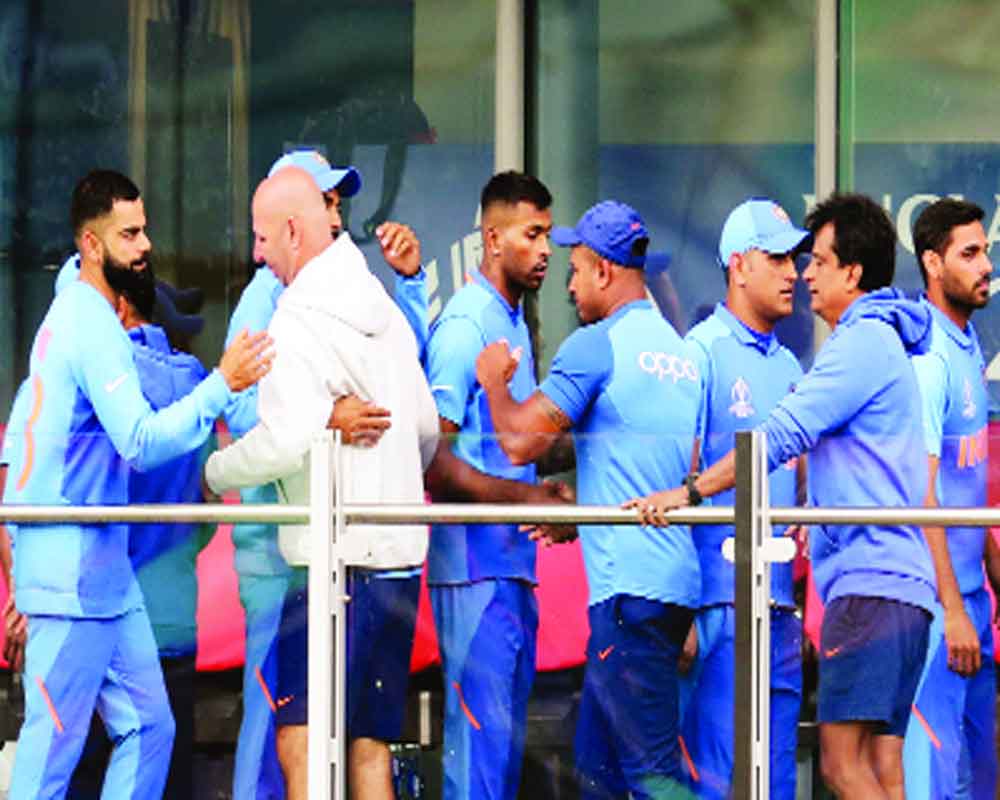While historical, religious and socio-economic disparities may have forced us to adopt caste-based reservation policies, these very moves have been detrimental to the promotion of meritocracy. India’s loss in the World Cup is an apt example
Poet Robert Browning had once said, “Ah, but a man’s reach should exceed his grasp, or what’s a heaven for.” Unfortunately, grasping excellence seems to be absent from the DNA of not just an average Indian but even those who excel. Of course, we simply refer to this as the ‘chalta hai’ culture that permeates almost every aspect of our life — be it social, cultural or professional.
Take the recent performance of the Indian cricket team at the International Cricket Council (ICC) World Cup held in the UK. Not only was it the odds-on favorite to win but apart from a couple of hiccups, the team played a superlative game of cricket and got into the semi-finals as the top team. Therefore, the Indian team’s loss to New Zealand was not only unexpected but shocking, given the relatively modest total that it confronted despite the loss of its front line batsmen scoring in single digits.
It goes without saying that defeat and victory are part and parcel of sports and one cannot but admire the manner in which the fans accepted the unexpected knock out gracefully — undoubtedly a sure sign of growing maturity.
Interestingly, both the coach and the captain accepted responsibility for the loss with equanimity. Captain Virat Kohli even went on to make the point that “45 minutes of bad cricket put you out of the tournament.” Coach Ravi Shastri echoed the captains’ sentiments and said, “Walk out with your heads held high. Be proud. Those 30 minutes can’t erase the fact that you guys have been the best team in the last couple of years… One tournament, one series and that, too, 30 minutes of play can’t decide that…”
Undoubtedly, both made an excellent point but there’s a catch: It wasn’t really the “30 or 45 minutes” that mattered but the manner in which the team played for the rest of the time in the game subsequently. While the batsmen did put up a fight, it was just not comparable to the manner in which the English recovered from similar circumstances to go on and win the trophy. Clearly, there was an excellent display of skill, acumen, sheer grit and above all, exemplary determination.
Therefore, such a mindset on the part of the Indian team reflects not just its unwillingness to accept any weakness but what is worse is complacency that is totally uncalled for, given that loss and complacency make strange bedfellows.
Obviously, it is here that our DNA is at play, for that allows us to accept the selection of some players for reasons other than form and their inability to deliver under pressure. Moreover, it isn’t as if this came as a complete surprise to those involved in team selection. This is exactly what they are paid to foresee but they preferred to ignore. It is this very fact that makes the “45 minutes bad cricket” answer glib and utterly dishonest.
That brings us to the larger question: Do we, as a country — and not just in sports — hope to progress, to become a “great power”? And if we do, can it be done without focussing on the very lynchpins of excellence, meritocracy and integrity?
While historical, religious and socio-economic disparities may well have forced us to adopt caste-based reservation policies as a necessity, these very moves have been detrimental to the promotion of meritocracy. Instead of providing equal opportunity and inclusiveness, the state has promoted divisiveness and a culture of entitlement. Wherever we have been able to avoid these pitfalls, results have been overwhelmingly positive.
Take the Army for instance, where apart from regional quotas for each State to ensure diversity, only merit counts in selection. Surely, that must have an exceedingly important part to play in ensuring that their performance, over the years, has been outstanding.
Though, it must be added that defeat here is wholly unpalatable. Surely, it behooves our political leadership not to accede to protests by those wanting to be included in the reservation pie, such as the Jats, Gujjars and Marathas. Instead, they must push us towards a more equitable and just society that places great value on skills, integrity and merit. Without this transformation in attitude we will only continue to grope for leftovers in the undergrowth.
(The writer, a military veteran, a consultant with the Observer Research Foundation and Senior Visiting Fellow with The Peninsula Foundation, Chennai)


























